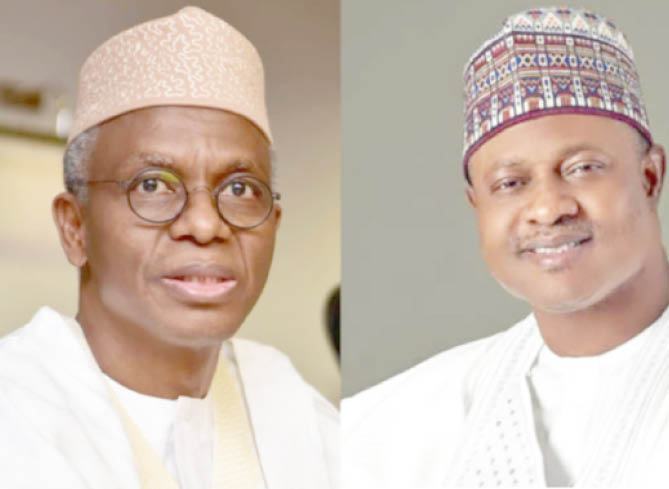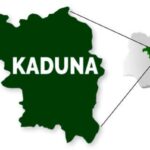Claim: An X user claimed that 45 per cent of Kaduna State’s debt was borrowed before Governor Nasir El-Rufai was elected in 2015.
Verdict: The claim is false. Data from the Debt Management Office (DMO) showed that 80.8 percent of Kaduna State’s domestic debt was borrowed under El-Rufai. The state’s domestic debt rose from N16.68 billion in 2014 to N87.2bn in June 2023. External debt rose from $226.3m to $569.3m under El-Rufai’s administration, thus 58.8 percent of the state’s external debt.
Full Text
Nigeria’s current debt profile has been a major concern for the government and its citizens. The country relies on crude oil sales for government revenue to fund critical infrastructures as well as pay salaries. The reduction in oil production from crude oil theft and the importation of refined oil products have limited what the government earns from the product.
The consequent borrowing from international and local institutions by the federal and state governments to fulfil their responsibilities to the citizenry has brought challenges as the government uses a large chunk of finances to pay debt.
Constitution amendment: ACF, 16 others prepare North’s position
FCCPC commences intervention in markets to crash food prices
While the government continues to pay its debt with the revenue it is generating, it is left with a quagmire regarding how to pay its workers and fund projects key to the welfare of its people.
This concern was the reason Uba Sani, Governor of Kaduna State, lamented his administration’s inability to pay workers’ salaries during a town hall meeting on March 30, 2024.
He blamed it on the huge debts inherited from his predecessor, Nasir El-Rufai. He stated that the state has a huge debt burden of $587m, N85bn and 115 contractual liabilities from his predecessor.
The governor’s comment stirred debate on X. It pitted him against the supporters of El-Rufai, who viewed his complaint as betrayal.
It was in the midst of the debate that (@IU_Wakilii) Imran Wakili tweeted:
“To Uba Sani and his new friends. Firstly, before I start, I would like to point out that 45% of the debt in question wasn’t acquired by the El-Rufai administration, as you are trying so hard to make it look.
Secondly, your administration is not creative at all, sir. Your administration doesn’t have a plan on how to boost IGR or create wealth for Kaduna State. Lagos is the most indebted state in Nigeria, but because they create wealth, you don’t see them complaining about debt.
“If you continued on the same trajectory as Mallam Nasir El-Rufai, Kaduna would’ve been generating almost N10bn monthly by now, and you wouldn’t be complaining about debt. But, sir, your administration is too focused on politics and impressing political stakeholders; that’s why you can’t do anything,” he added.
Daily Trust on Sunday decided to investigate this claim because of its potential to misinform.
Verification
A check on the website of Nigeria’s Debt Management Office showed that Kaduna State’s domestic debt was N16.6bn in 2014, a year before El-Rufai was elected. Still, it rose to N87.2bn as of June 2023, a month after he left.
Also, the state’s external debt was $234.4m in 2014 but rose to $569.3m in June 2023.
Analysing the Debt Management Office’s debt data, $234.4m was deducted from $569.3m. It gave the answer as $334.9m, the sum borrowed under El-Rufai. Another calculation showed that $334.9m makes up 58.8 per cent of the state’s debt.
Calculations showed that the domestic borrowing debt under El-Rufai was N70.5bn, which makes up 80.8 per cent of the state’s debt. This is because the debt was N16.6bn in 2014, a year before El-Rufai was elected, and it rose to N87.2bn when he left.
Analysis showed that domestic debt was 423 per cent while external debt rose by 159 per cent.
Expert Opinion
A financial expert and senior partner at SPM Professionals, Paul Alaje, said the primary reason Kaduna State’s debt profile bludgeoned under El-Rufai was the $350m World Bank loan he borrowed in 2019 for infrastructure development.
“The loan which was first rejected by the Senate led to controversy due to the huge amount. I believe he also replicated this in the domestic borrowings because there was a time he spoke in the news that his successor will take over N85bn debt from him.”
On whether interest rate could influence the high rise of debt under El-Rufai, he said: “Yes, it is possible, but he would have paid a substantial amount of it since his tenure saw an improved collection of Internal Generated Revenue (IGR). So, I don’t think the interest rate affected the state’s debt to accrue to the N87bn he left,” he said.
Conclusion
The claim that 45 per cent of Kaduna State’s debt was borrowed before El-Rufai was elected is false.

 Join Daily Trust WhatsApp Community For Quick Access To News and Happenings Around You.
Join Daily Trust WhatsApp Community For Quick Access To News and Happenings Around You.


